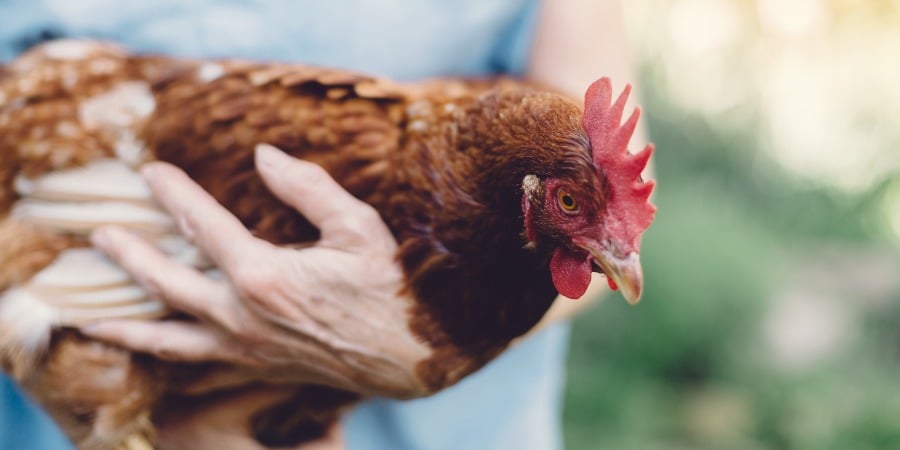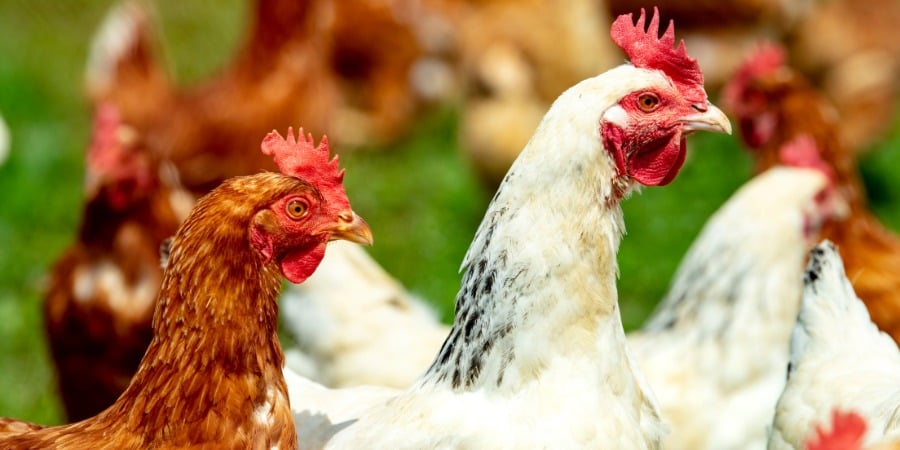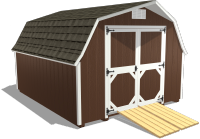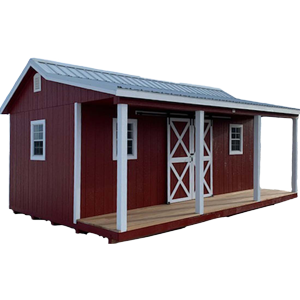Tips & Techniques: The Ultimate Guide to Raising Chickens Successfully
by Dakota Storage Buildings, on April 15, 2024

Whether you are just starting to raise backyard chickens or an experienced poultry farmer, this blog can serve as a comprehensive resource for navigating the world of chicken keeping. It is designed to guide you through the entire process — from selecting the right chicken breeds and an enclosed chicken coop to implementing proven care practices that contribute to the well-being and happiness of your chickens. We will cover the intricacies of managing a healthy and productive flock, including understanding their behavioral patterns, nutritional needs, and the best ways to protect them from potential threats. With detailed insights and expert advice, we aim to equip you with the necessary tools and confidence to excel in raising chickens, transforming it from a mere hobby into a rewarding and sustainable aspect of your lifestyle. By following this guide, you will raise a thriving backyard flock.
Picking Your Perfect Chicken Breed

Selecting the appropriate chicken breed is the initial step on your path to successful poultry raising. Each breed brings its own unique set of attributes ranging from prolific egg-laying capacities and distinctive egg colors to varying temperaments and degrees of resilience to different weather patterns. This means that your specific needs and preferences, such as the desired egg color, the climatic conditions of your locality, and your expectations from raising chickens play a significant role in making an informed choice. By understanding and applying the principles of selective breeding, you can effectively work towards optimizing egg production, improving the health and robustness of your flock, and even enhancing certain traits within your chickens. This can include factors such as better disease resistance, more consistent egg size and shell strength, and temperament traits that make for more sociable and less aggressive birds.
It is also important to factor in the size and space available in your backyard, as some breeds require more room to roam than others. The social structure and dynamics of the breed, their foraging behavior, and their compatibility with other pets or animals in your homestead are also critical elements to contemplate. Taking the time to thoroughly research and understand the specific requirements and characteristics of different chicken breeds will not only ensure that your chickens can live healthy and happy lives but also guarantee that your poultry-raising journey is as fulfilling and productive as possible. With this knowledge, you will be better positioned to create a harmonious and thriving backyard flock that meets your personal goals and enhances your daily life.
How to Raise Healthy Backyard Chickens
Raising healthy backyard chickens involves more than basic care; it's about creating an environment that nurtures their well-being and happiness. Here, we delve into effective strategies to ensure your chickens thrive, focusing on their physical health and behavioral needs.
Water
On average, hens consume about one cup of water daily. Keeping your chickens hydrated is vital, but did you know that the way you manage their water can significantly impact their health and egg production? Tips for optimal water management include:
- Consider installing automatic waterers for a consistent, clean water supply. These systems save time and ensure water is always available, but regular checks are crucial to avoid malfunctions or dirt accumulation.
- In colder climates, heated water systems prevent the water from freezing, ensuring your flock has access to water even in cold temperatures. Simple hacks like adding a submersible heater can keep water at a drinkable temperature.
Nutrition
Nutrition plays a pivotal role in the health and productivity of your chicken flock. A diet that is well-balanced and tailored to the specific needs of your chickens is crucial. Here’s some tips to keep in mind:
- Create a "chicken-safe" compost area where your flock can forage for scraps. This not only reduces waste but also enriches their diet with natural nutrients.
Make sure to avoid foods like avocados, chocolate, and dry beans because they can be toxic to chickens. - Introduce a "grit station" where chickens can help themselves to the necessary grit for digestion, ensuring they can process any food they consume effectively.
- Opt for high-quality commercial feeds designed for layers. These typically contain the right mix of protein, vitamins, minerals, and calcium necessary for optimal egg production.

Routines
Establishing a consistent daily routine is beneficial for you as the poultry keeper and the chickens. A structured schedule helps regulate the chickens' biological clock, reduces stress, and promotes healthy laying patterns. Enhance your daily routines with these tips:
- Mornings should begin with letting the chickens out of their coop, refreshing their feed and water, and collecting any eggs laid overnight.
- Evening routines should focus on securing the chickens safely in their coop for the night to keep them protected against predators.
- Weekends give you time to thoroughly clean the coop. This is critical for maintaining a disease-free environment. Remove soiled bedding, wash the coop floor, and ensure nesting boxes are clean for the coming week.
Quality Coops for Year-round Comfort

A thoughtfully designed enclosed chicken coop serves as a safe haven and a comfortable living space that meets all their needs. The ideal enclosed chicken coop should provide sufficient room for each chicken to roost comfortably, ensuring they have enough personal space to prevent stress and aggression among the flock. The coop must be fortified against potential predators with sturdy construction and secure locking mechanisms to keep your chickens safe from harm. Plus, it provides protection from harsh weather conditions like the scorching sun, driving rain, or biting cold. Ventilation is another critical aspect of coop design. A well-ventilated space helps to maintain healthy air quality by allowing fresh air to circulate and reducing the buildup of ammonia and moisture, which can lead to respiratory problems and other health issues in chickens. However, this ventilation must be balanced with the need to avoid drafts, particularly in colder climates, where chilling winds could significantly impact your chickens' comfort and health.
When selecting a coop, it is important to look beyond just the basics and consider the long-term benefits of investing in a structure that promises quality and durability. Opt for materials that can withstand the elements and the test of time, ensuring that your coop remains a secure and inviting space for years to come. Additionally, design features that cater to the specific needs of your flock, such as easy-to-clean surfaces, predator-proof nesting boxes, and sufficient space for feeders and waterers, can make daily care routines more manageable and more effective. Ultimately, the enclosed chicken coop you choose should reflect a commitment to providing your chickens with the best possible living conditions. By prioritizing quality, durability, and thoughtful design, you can create a coop that not only meets the immediate needs of your flock but also contributes to their overall happiness and productivity. Whether you are building from scratch or selecting a pre-made option, remember that your coop is the foundation of your chickens' home life and plays a crucial role in their health and well-being.
Your Ultimate Guide to Raising Chickens
Raising chickens is an incredibly rewarding venture that encompasses a wide range of responsibilities, from thoughtful breed selection and meeting specific dietary needs to providing suitable housing. This guide serves as your initial stepping stone toward raising a flourishing backyard flock. To further enhance your chicken-raising journey, we encourage you to download our free resource, “The Beginner’s Guide to Backyard Chickens.” It is packed with in-depth information, additional tips, and practical techniques designed to ensure the health and happiness of your chickens. With dedication, proper care, and the right resources at your disposal, you will be able to enjoy the numerous benefits of keeping chickens. Start your poultry-keeping journey with confidence, knowing you have the support, quality products, and valuable insights from Dakota Storage Buildings to guide you every step of the way.

























